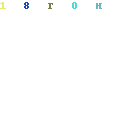RA 9646- IRR Published
2010-08-18Salient Features of The Implementing Rules & Regulations (IRR) of The “Real Estate Service Act” law (Republic Act No. 9646 ) published last 24 July 2010 and shall take effect 15 days after publication
- Every real estate service practitioner (real estate consultant, real estate appraiser, real estate assessor, real estate broker) except the real estate salesperson shall be required to undergo licensure examination and registration under the PRC. (Rule III, Sec 12)
- Those who wish to be licensed real estate brokers must meet the minimum qualification for examinations, which include a relevant Bachelor’s degree from an education institution duly recognized by the CHED. (Rule III, Sec 14).
- The PRC shall not issue a certificate of registration to any successful examinee who has been convicted by a court for any criminal offense, or has been guilty of immoral or dishonorable conduct, or has be found to be psychologically unfit. (Rule III, Sec 18)
- Those who are already licensed real estate brokers as of 30 July 2009 may be registered by the PRC without examination provided they are in active practice, and have undertaken the relevant Continuing Professional Education or Continuing Education Program. (Rule III, Sec 20 a)
- All licensed real estate brokers shall be required to post a surely Bond of P20,000.00 renewable every three years. (Rule IV, Sec 26)
- No person shall be allowed to practice as a real estate broker unless he or she is a licensed real estate broker. (Rule IV, Sec 29)
- Real estate salespersons do not have to undertake the licensure examinations, but they shall be accredited by the PRC, provided they have completed at least two years of college, and have undergone training and seminars of at least 12 credit units in real estate brokerage, (Rule IV, Sec 31)
- Real estate salespersons already registered with the DTI/HLURB may be accredited by the PRC until 30 July 2011.
- Real estate salespersons shall be under the direct supervision and accountability of a real estate broker. (Rule IV, Sec 31)
- Real estate salespersons cannot be signatories to a written agreement involving real estate transactions unless the real estate broker who has direct supervision over them is also a signatory. (Rule IV, Sec 31)
- Real estate salespersons cannot negotiate, mediate or transact any real estate transactions for and in behalf of a real estate broker without first securing accreditation as a real estate salesperson for the real estate broker as prescribed by the PRC. (Rule IV, Sec 31)
- A real estate broker shall be in violation of R.A. No. 9646 for utilizing the services of a real estate salesperson who has not secured accreditation with the PRC. (Rule IV, Sec 31)
- Only the licensed real estate broker who has direct control and supervision of a real estate salesperson may receive or demand a fee, commission or compensation of any kind for any service rendered by the real estate salesperson in any real estate transaction. (Rule IV. Sec 32)
- Divisions or departments of partnerships or corporations engaged in the selling of any real estate development project must be headed by a licensed real estate broker. Branch offices of real estate brokers must be manned by a licensed real estate broker. (Rule IV, Sec 32)
- Every licensed real estate broker shall establish and maintain a principal place of business and display their certificates of registration and professional identification card, as well as the certificates of registration and professional identification cards of all the real estate service practitioners employed in such office. (Rule IV, Sec 33)
- Any violations of R.A. No. 9646 and its implementing rules & Regulations shall be meted a fine of P100,000.00 or imprisonment of two years, or both. Penalty on the fine and imprisonment shall be double if the violation is by an unlicensed real estate practitioner. (Rule V, Sec 39)
- If the violation is committed by a partnership or corporation, the partner, president or manager who has committed, or consented to, or knowingly tolerated the violations shall be held directly liable and responsible for the acts as principal or as co-principal with the other participants. (Rule V, Sec 39)
Sponsors
Follow @IRPeXPh































